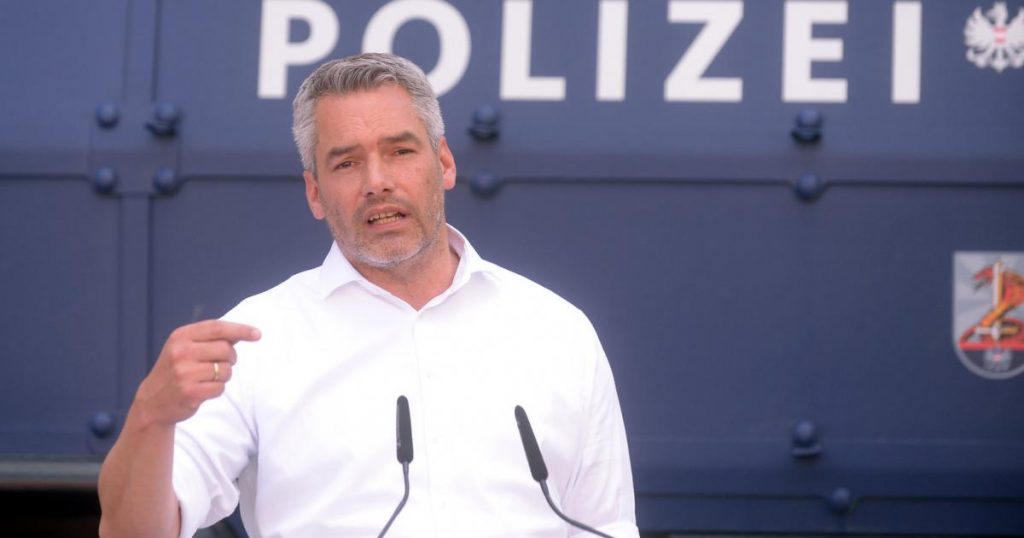We, the Ministers of Interior/Immigration/Ministers of State of Austria, Denmark, Belgium, the Netherlands, Greece and Germany, would like to express our concern about the current developments in irregular migration from Afghanistan.
Afghanistan has been one of the most important countries of origin for the European Union for years. For example, since 2015, about 570,000 asylum applications were submitted by Afghan nationals in the European Union. In 2020, Afghanistan was the second largest country of origin with about 44,000 initial applications. This trend will continue into 2021. We also note with concern the high rate of unaccompanied minors among Afghan illegal immigrants.
We are fully aware of the delicate situation in Afghanistan in light of the planned withdrawal of international forces. An estimated 4.6 million Afghan citizens have already been displaced, many of whom have moved to neighboring countries. Our common goal should therefore be to provide people in need of protection in neighboring countries the best possible support – not least in the sense of the Geneva Convention, to provide security near areas of origin. We must therefore look for ways in which we can expand protection capacities in the region in order to reduce migration pressure along the way.
Although several projects and initiatives in support of Afghanistan and its neighbors are currently being implemented, further actions are required in the region to prepare for a possible influx of Afghan nationals. To this end, cooperation with Afghanistan and its neighboring countries such as Pakistan and Iran should be strengthened in the areas of immigration control, border protection and public protection. Ideas such as the Team Europe initiative and the new “Regional Development and Protection Program” for Afghanistan and the Silk Road supra-regional region should be further detailed, particularly in the area of migration. Against this background, Austria has already announced its intention to organize a workshop on Afghanistan for interested Member States and the Committee.
In order to continue the “Common Way Forward”, the Joint Declaration on Migration Cooperation (JDMC) between Afghanistan and the European Union was signed on 28 April 2021. It reflects the continued joint intention of the Government of the Islamic Republic of Afghanistan and the European Union to intensify cooperation in the field of migration management. This declaration includes facilitating the dignified, safe and orderly return to Afghanistan of Afghan nationals who do not meet the requirements for residency in the European Union. On the basis of this declaration of intent and as one of the most important pillars of both the Common Way Forward (2016-2021) and the current JDMC, the European Union, in close cooperation with international partners, has developed funding programs to promote the development of voluntary return and support sustainable reintegration in Afghanistan. At the same time, implementation of enforceable decisions on return and readmission of Afghan nationals by the Afghan government on a voluntary basis is an integral part of the overall management of immigration according to the JDMC.
The European Union and its Member States are determined to continue working together under the Memorandum of Understanding and upholding the principles of the Declaration.
But on July 8, 2021, EU member states received a note verbale from the Afghan Ministry of Refugees and Repatriation informing them of a “decision” to suspend forcible returns to Afghanistan for a period of three months.
We would like to reiterate that the JDMC does not include a provision to suspend or suspend returns to Afghanistan – any kind of disagreement over the interpretation of the agreement should be resolved in the Joint Working Group. In addition, there is a general obligation under international law for each state to take back its citizens.
Against this background, we call on UNHCR to intensify dialogue with its Afghan partners on all pressing migration issues, including rapid and effective cooperation on returns on the basis of the Joint Working Group.
We would also like to point out the urgent need for voluntary and involuntary return to Afghanistan. Given the high probability that Afghanistan will remain a major source of irregular migration to the European Union, we would like to stress the importance of the return of people who do not need real protection. Stopping the return would also send the wrong signal and possibly motivate more Afghans to leave their homeland for the European Union. That is why we urge you and your teams on the committee to seek further discussion with the Afghan government on how to continue returning to Afghanistan in the coming months. Finding ways to secure a return to Afghanistan should be a priority for all of us. If concrete offers of the Afghan government are needed, we should not hesitate to make proposals on how to support Afghanistan in combating irregular migration and in stabilizing the country.
In conclusion, we would like to stress that there is a certain group of Afghan nationals in our asylum and immigration systems that deserves special attention when it comes to integration challenges. It should therefore be our common interest and top priority that Afghan citizens in particular who have committed serious crimes leave the European Union.
We would like to thank you for your efforts and hope that the Commission and Member States will work together to resolve this issue of highest priority.

“Food practitioner. Bacon guru. Infuriatingly humble zombie enthusiast. Total student.”







More Stories
KaDeWe stops selling meat and sausages
Another earthquake near the giant Naples volcano
Trump wants to block Harris' access to donations